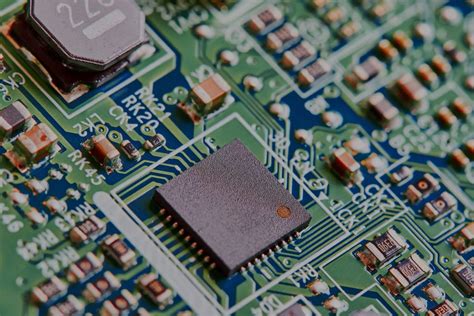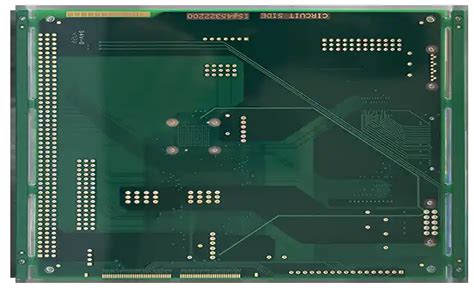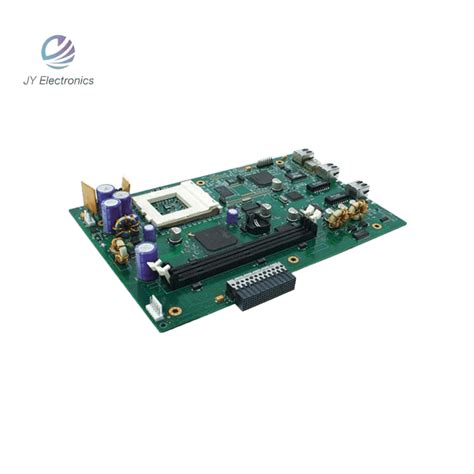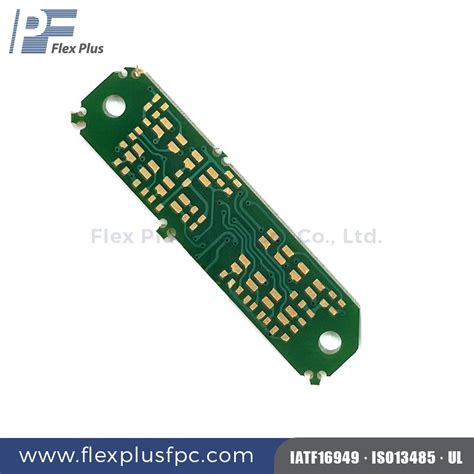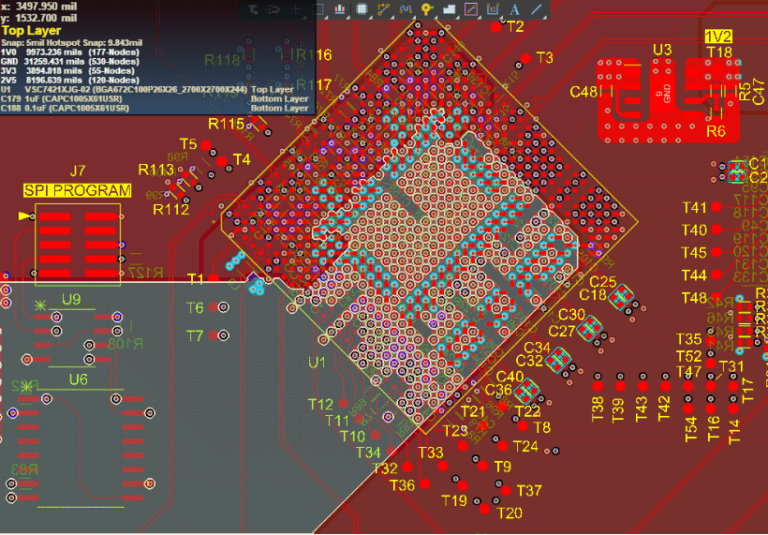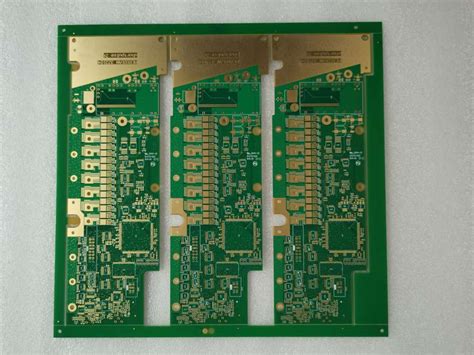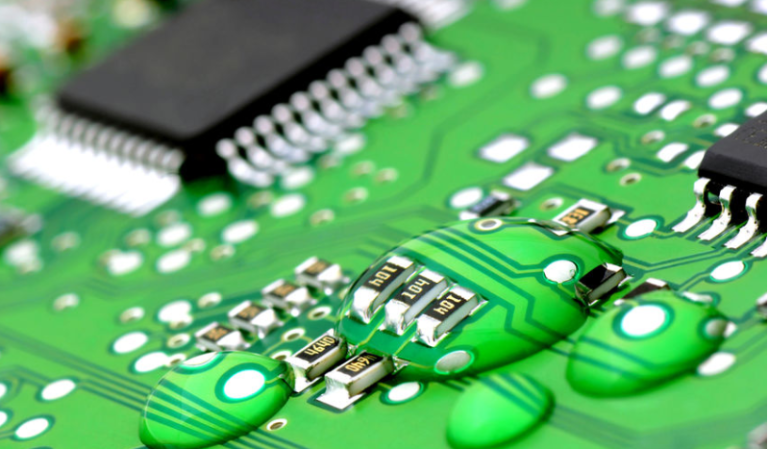Unlocking Innovation: The Power of Custom Circuit Board Assembly
Key Takeaways
Custom circuit board assembly, often referred to as pcb assembly or pcba, plays a pivotal role in modern technology. It allows companies across various sectors to adapt and respond to specific needs, enabling them to achieve optimal performance and efficiency. The benefits of employing tailored circuit solutions are numerous; they can lead to improved reliability, reduced costs, and enhanced product designs. By utilizing customized PCBs, businesses can innovate faster and create products that better fit the demands of their users. Moreover, this approach signifies a shift towards more intelligent design practices where each component is meticulously considered for its intended use. As industries continue to evolve, the ability to harness the transformative potential of pcba is becoming increasingly vital for maintaining a competitive edge. Ultimately, this innovative strategy not only enhances the technical aspects of devices but also contributes significantly to driving forward-thinking solutions across various markets.
Understanding Custom Circuit Board Assembly: An Overview
Custom pcb assembly plays a pivotal role in the modern technological landscape, serving as the backbone for innovative products across various industries. PCB assembly or pcba allows for the creation of tailor-made circuit boards designed to meet specific user requirements and applications. This process encompasses multiple stages, including circuit design, component sourcing, and assembly, leading to a product that is not only functional but also optimized for efficiency and performance.
The benefits of using custom pcb assembly are manifold. Firstly, it enables manufacturers to incorporate unique features that set their products apart from competitors. For instance, specialized components can be integrated into a pcba, allowing for improved functionality that aligns closely with market demands. Moreover, leveraging custom solutions can lead to significant cost savings in both production and logistics by optimizing materials based on the specific project requirements.
To illustrate the impact of custom solutions in real-world scenarios, consider the following table highlighting key industries and their applications of custom circuit board assembly:
| Industry | Application | Benefits |
|---|---|---|
| Consumer Electronics | Smartphones | Compact designs with advanced features |
| Automotive | Engine control units | Enhanced reliability and safety |
| Medical Devices | Diagnostic equipment | Precision and compliance with regulations |
| Industrial Automation | Robotics | Increased efficiency and reduced downtime |
With rapid technological advancements, the demand for custom pcb assembly continues to grow. Companies are increasingly recognizing that investing in tailored pcba solutions is not merely about keeping pace with innovation but also about unlocking new avenues for growth and development. As industries evolve, customization will remain a critical driver of success.
“In today’s competitive market, customization isn’t just an option; it’s a necessity.”
By embracing the power of tailored circuit board assembly, businesses can position themselves at the forefront of innovation, ensuring they not only meet but exceed customer expectations while navigating an ever-changing marketplace.
The Benefits of Tailored Circuit Solutions in Modern Technology
In an era where innovation is crucial for competitiveness, custom circuit board assembly (often referred to as PCB assembly or PCBA) offers significant advantages that drive technological advancement. One of the primary benefits of tailored circuit solutions is the ability to meet specific performance requirements for diverse applications. By customizing designs, manufacturers can optimize the circuit board layout and component selection, ultimately enhancing efficiency, reliability, and functionality.
Additionally, the process allows for greater design flexibility, which is essential in rapidly evolving industries such as consumer electronics and automotive technology. Tailored solutions enable companies to incorporate advanced features into their products swiftly, ensuring they stay ahead of market trends. Moreover, customized PCBA reduces material waste since engineers can design boards that precisely fit the intended product specifications without excess components or inefficient layouts.
Further, by utilizing custom circuit solutions, businesses can achieve reduced production costs over time. While initial investments may be higher than standard alternatives due to the bespoke design process, the long-term savings generated from increased operational efficiency and minimized defects can lead to improved profit margins. In essence, opting for tailored pcb assembly fosters a cycle of innovation that empowers industries to explore new possibilities and expand their offerings beyond conventional boundaries.
Key Industries Leveraging Custom Circuit Board Assembly
In today’s rapidly evolving technological landscape, custom circuit board assembly (also known as PCBA) plays a pivotal role across various industries. The electronics sector is a primary beneficiary, utilizing tailored solutions to enhance product performance and reduce manufacturing costs. From consumer electronics like smartphones to industrial automation systems, the ability to customize circuit boards allows manufacturers to meet specific functional requirements while maintaining high levels of efficiency. Moreover, the automotive industry increasingly relies on custom PCB solutions as vehicles advance toward greater automation and connectivity. Customization enables the integration of advanced features, such as smart sensors and adaptive systems, essential for the development of electric and autonomous vehicles.
In the realm of healthcare, custom PCBA supports innovative medical devices that require precision engineering to ensure patient safety and efficacy. The ability to adapt designs according to regulatory standards and user needs highlights how vital this technology is in delivering life-saving solutions. Furthermore, industries such as telecommunications, where rapid components deployment is crucial for system upgrades and expansions, also benefit significantly from tailored circuit boards.
By catering to the unique demands of each sector through bespoke design options in PCB assembly, companies can unlock unprecedented opportunities for innovation and efficiency. As industries continue to evolve, the significance of custom PCB solutions will only grow stronger, driving both technological advances and market competitiveness. The versatility encapsulated within custom circuit board assembly exemplifies how targeted engineering can empower diverse applications across sectors.
Designing for Success: The Impact of Customization on Performance
In the competitive landscape of technology, custom circuit board assembly (commonly referred to as pcba) plays a crucial role in enhancing performance and efficiency. By focusing on tailored solutions, organizations can innovate and integrate specific functionalities that meet their unique requirements. This level of customization enables engineers to optimize pcba designs for reduced size and weight, increased durability, and better heat dissipation. As a result, the performance of electronic devices is significantly improved, allowing companies to push the boundaries of what technology can achieve. Additionally, the ability to address specific application needs means that industries ranging from healthcare to automotive are better equipped to tackle challenges with precision. Embracing pcb assembly not only fosters innovation but also ensures that performance metrics are consistently aligned with user expectations and industry standards, paving the way for future advancements in technology.
Innovations Driven by Custom Circuit Boards: Real-World Applications
The use of custom circuit board assembly (pcb assembly) has revolutionized various industries, showcasing remarkable innovations that stem from tailored electronic solutions. For instance, in the medical sector, pcba plays a critical role in the development of sophisticated medical devices, such as diagnostic equipment and wearable health monitors. These devices require precise and reliable performance, which is achievable through customized circuit solutions that meet specific regulatory standards and operational parameters.
Similarly, in the automotive industry, pcb assembly is integral to advancements in electric vehicles (EVs) and autonomous driving technology. Here, the importance of pcba becomes evident as it allows manufacturers to integrate complex systems that enhance vehicle safety and efficiency. As more automakers adopt these innovative techniques, they create adaptable platforms that can be upgraded with advanced features over time.
Additionally, the consumer electronics market continually benefits from the flexibility of custom circuit board assembly, driving innovations in smartphones, smart home devices, and gaming technology. These applications not only improve user experiences but also pave the way for seamless integration with emerging technologies such as artificial intelligence and the Internet of Things (IoT). As industries harness these capabilities, it becomes clear that investing in tailored solutions leads to significant enhancements across various technological landscapes.
Future Trends in Circuit Board Assembly: What to Expect
The landscape of custom circuit board assembly (or PCBA) is undergoing significant evolution, driven by technological advancements and changing market demands. One trend poised to reshape the future is the integration of smart manufacturing techniques. This includes automation in the pcb assembly process, where robotics and AI streamline production, reducing human error and increasing efficiency. Moreover, the rise of Internet of Things (IoT) devices has escalated the demand for highly specialized circuit boards that cater to unique functionalities, leading to innovative designs that promise enhanced performance. Additionally, sustainability concerns are prompting manufacturers to adopt eco-friendly materials and practices in pcba, paving the way for greener production methods without compromising quality. The future will also likely see an increased emphasis on modular designs that allow for easier upgrades and repairs, thereby extending the life cycle of electronic products. As industries continue to leverage these trends, custom solutions will not only meet specific operational criteria but also enhance user experiences, ultimately unlocking new possibilities across various sectors.
Overcoming Challenges in Custom Circuit Board Production
In the ever-evolving realm of technology, the pcb assembly process faces several challenges that can hinder efficiency and innovation. One significant obstacle is ensuring the precision of pcba components, as even minor discrepancies can lead to functional failures in electronic devices. Manufacturers must invest in high-quality materials and advanced machinery to mitigate this risk. Moreover, supply chain disruptions can affect the timely availability of parts needed for custom circuit board assembly. This underscores the importance of strategic supplier relationships and inventory management systems that can adapt to fluctuating demands. Additionally, keeping pace with rapidly changing technological standards complicates design processes, necessitating continuous training for engineers and designers involved in pcb assembly operations. By confronting these challenges head-on, companies position themselves to leverage custom circuit board assembly not merely as a manufacturing process but as a catalyst for innovation across various industries. Embracing flexibility and investing in technology will ultimately enhance the potential of tailored solutions, driving significant advancements in product performance and reliability.
Unlocking New Possibilities: Case Studies in Innovation Through Custom Solutions
The pcb assembly landscape is witnessing a profound transformation as industries embrace the potential of customized solutions. One notable case study is in the medical technology sector, where pcba has revolutionized patient monitoring systems. By utilizing bespoke circuit design, companies have developed compact, efficient devices that provide real-time health data, significantly enhancing patient care. Additionally, in the automotive industry, custom circuit board assembly solutions have enabled the integration of advanced driver-assistance systems (ADAS). These tailored pcb assembly technologies allow manufacturers to ensure both safety and performance while meeting the specific needs of modern vehicular design.
Another significant application can be seen in consumer electronics, where innovative pcba strategies have led to the creation of smart devices that seamlessly interact with users. For instance, personalized smart home systems utilize custom circuit boards to accommodate varied consumer preferences while ensuring energy efficiency. By leveraging these tailored solutions, businesses are not only optimizing their products but also fostering a more dynamic user experience.
In summary, these case studies exemplify how custom circuit board assembly is not just about meeting technical specifications; it is about driving innovation and unlocking new possibilities across various sectors. The ability to customize and adapt enhances functionality and ensures that technological advancements align closely with user needs and market demands. This shift towards customization highlights a pivotal change in how industries view pcb assembly, positioning it as a cornerstone of future innovation.
Conclusion
In summary, the impact of custom circuit board assembly (pcb assembly) on the technological landscape cannot be overstated. As industries increasingly seek to differentiate themselves and enhance their offerings, the need for tailored solutions has surged. Through pcba, organizations can achieve higher performance levels, streamline processes, and foster innovation that extends beyond standard applications. The flexibility of custom design allows for the integration of cutting-edge technology into products that cater to specific needs, enhancing both functionality and user experience. Furthermore, as we look toward future advancements, pcb assembly will continue to be pivotal in driving not only efficiency but also sustainability within various sectors. Ultimately, embracing custom solutions in circuit board design opens doors to a myriad of possibilities—creating a future where innovation thrives at the intersection of technology and design.
FAQs
What is custom circuit board assembly (PCBA)?
Custom circuit board assembly, or PCBA, refers to the process of manufacturing and assembling electronic circuits that are tailored to specific requirements. This involves sourcing components, soldering them onto a PCB, and ensuring functionality according to design specifications.
What are the benefits of using custom circuit board assembly?
The primary benefits include improved performance, flexibility in design, and cost efficiency for high-volume projects. Custom circuit board assembly allows for innovations that suit unique specifications, resulting in better integration with existing systems and enhanced overall user experience.
In which industries is PCBA commonly utilized?
Industries such as consumer electronics, automotive, aerospace, and medical devices heavily leverage custom circuit board assembly. Each sector requires specialized solutions to meet their rigorous standards for quality and reliability.
How does customization impact the performance of electronic devices?
Designing tailored PCBAs ensures that each component is optimized for its particular function, reducing waste and maximizing efficiency. This level of customization leads to higher performance and enhanced durability in electronic devices.
What future trends should we expect in the PCBA industry?
We can anticipate advancements in automation, greater adoption of environmentally friendly materials, and improvements in precision engineering. These trends will continue to reshape how custom circuit board assembly is approached.
Unlock Your Potential with Custom Solutions!
For more insights into how PCBA can transform your projects, please click here.

